Rameez Makhdoomi & Shahzad Hamdani
Islam is derived from the Arabic root “Salam”: peace, purity, submission and obedience. In the religious sense, Islam means submission to the will of God and obedience to His law.
Everything and every phenomenon in the world other than man is administered totally by God-made laws, i.e. they are obedient to God and submissive to his laws, they are in the State of Islam. Man possesses the qualities of intelligence and choice, thus he is invited to submit to the good will of God and obey His law, i.e., become a Muslim.
The Holy Prophet (PBUH), like all earlier Apostles, was chosen and bestowed with Divine Faith and Heavenly Guidance. Those who responded to his call by accepting his Message, naturally, went to form a separate community – which came to be known an “Ummat-um-Muslimah” the Islamic Fraternity and Brotherhood.
During the Prophet’s lifetime, the Ummah served as his right hand assisting him in the preaching and propagation of the Islamic Faith to mankind. After his death, the Ummah had to fulfill this sacred mission, till the end of time, as his “deputy.” The fulfillment of this responsibility not only requires possession of qualities of firm belief, devotion to Allah Almighty, piety, righteousness, enthusiasm etc., but also strong bond of unity amongst the members, of the Ummah – where their hearts remain united and they act like a single body. They should behave like a fraternity, bound together by ties of religious solidarity, brotherly love and kind feelings. If, on the other hand, the Muslims were to be divided among themselves, and if instead of unity and solidarity there is a discord and disunity, they cannot be regarded as worthy of such a task.
Due to this very reason, the Prophet (PBUH)took special pains to stress upon the members and different classes of the Ummah (i.e. all Muslims), the need to behave towards each other as brothers- helping one another fulfilling the claims arising from the common bond of Islam. This emphasis by Rasulullah (PBUH) was all the more necessary because the Ummah includes people from various countries, races, tribes and social ranks, each with their own ethnic, cultural, linguistic or temperamental features.
It is narrated by Abu Moosa Ash’ari (R.A) that The Messenger of Allah (PBUH) said, “The connection between Muslims is like that of a strong building – one part strengthens another.” The Prophet (PBUH) then showed this by interlocking the fingers of one hand with those of the other (that Muslims should remain united and combined – thereby strengthening one another). “
As narrated by Huzaifah (R.A) the Prophet (PBUH) said, “Whoever does not take an interest in the affairs and problems of the Muslims, he is not of them. And whoever’s state is such that, each morning and evening, he is not loyal and earnest to Allah, his Apostle, His Book, the Islamic ruler and towards the Muslims, as a whole, he is not of them. “
Where on one side Prophet Mohammed (SAW) had always stood and prayed for the unity of the Ummah, currently in a painful manner the sectarian clashes and the discord among the Muslims is increasing day by day. The western propaganda to divide the Ummah has always been a sucessful weapon to fight against the Muslim Countries. Where on one side, discord among the Muslim communities is spreading in almost every part of the world; some places are still safe from the sectarian fire.
The Valley of Kashmir had always been far away from sectarian fire. The unity cord among the Muslims has always been an example for other nations. Sectarian strife is threatening the unity of Kashmir and can tantamount to destroying the nation of Kashmir. The Cancer of sectarianism has over the past few years shown uptrend in once “sectarian tension” free valley. Central Kashmir’s Budgam district and Bemina area of Srinagar have emerged as the worst hit parts by this recent spate of sectarian violence between Sunni and Shia Muslims. The question on the lips of every sane Kashmiri which has remained unanswered is that –“Who is fanning these sectarian fires in once harmonious valley of Kashmir”?
But undoubtedly what has emerged as positivity is that all voices of wisdom have vocally criticized this sectarian strife ranging from Lawyer to Journalist to Common man and in this regard have come down heavily on these anti-social elements fermenting the sectarian clashes.
Mufti Bashir-ul-Alam Chogli while talking to The Kashmir Scenario States -“The teachings of Holy Quran and Prophet Muhammad (PBUH) stress upon the Muslims to maintain unity as we follow same Quran, Prophet and Allah. Anybody stoking sectarian fires is not a Muslim and those who indulge in loot and arson, beating and molestation in the name of religion have been described as satanic forces by our great religion Islam. The need of the hour is to strengthen the bonds of unity and defeat the evil forces.”
At the onset it would be also aptly correct to define this whole painful saga by these beautiful lines written by Najeeb Mubarki, well known Kashmiri Journalist and pro-freedom intellectual on Facebook Group Kashmir Solidarity Network – “There is little doubt that an alleged scuffle between two drivers of commercial vehicles leading to a major sectarian clash in Kashmir is not something spontaneous and happening on its own free will and trajectory. The lumpen elements involved, the new sectarian Ikhwanis, should be identified as such. This, such a sectarian clash, has often been sought to be engineered in Kashmir. Those with a longer memory can cite many instances: a targeted grenade blast; a torn poster, and anything else in between will do for the state agencies working to achieve this discord. And thereby, make this another front where Kashmiri society remains preoccupied, and at loggerheads with itself, and the larger occupation, and its figures and collaborators remain hidden, and probably laughing at all of us right now.
The lumpen elements involved in such acts must be seen as nothing and nothing else as but the newer form of Ikhwanis.
Najeeb further opined – “It must be abundantly clear that the responsibility for the safety of the minority rests with the majority. By definition, the majority has the greater responsibility. You would do well to digest that fact.
I am no religious scholar. But I am not a novice, either. And, on such matters, I hold the word of Ayatollah Khomeini to be true: speaking to an interviewer on the supposed Shia-Sunni divide, he said, and I paraphrase, that every Shia in a Sunni majority area should pray, offer the salah, like the Sunnis do. And every sunni living in a majority of Shia area should pray like the Shias. The point, he said, is to be together. To pray together, under the banner of the one God, the kalima, the Prophet. All else, all difference, is a matter of interpretation.
That difference in interpretation is it within Shias, within Sunnis, is being used by the occupation forces as a divisive tactic. Every person who falls prey to this is as guilty as the occupation itself.
Remember that idiotically good old proverb: United we stand, divided we fall.”
Experts are also expressing concern that the manner in which government has handled the issue has been disappointing considering the grave magnitude of the problem. According to them the problem also needs serious understanding in the backdrop of havoc it has wrecked in Muslim societies of Iraq, Syria and Pakistan. Commenting on this sensitivity, Advocate Babar Qadri, a well-known human rights activist and lawyer states – “The handling of this burning issue by the concerned authorities has been dismal to say the least .From several years it looks aptly clear that secret agencies are stoking sectarian fires probably to divert the attention from the burning political issue of Kashmir. Tragically, the manner in which social networking like Facebook has been used by some anti-social elements has further worsened the scenario.”
Mushtaq ul Haq Sikander, eminent political commentator who has closely studied the subject remarks – “Shia Sunni controversy started during the initial phase of Islam and since then has remained as one of its deepest shortcomings. No efforts have worked to bridge the gap and this controversy is bound to remain. But the need of the hour is that to develop a spirit of tolerance towards each other rather than decreeing that nothing like Shia-Sunni exists in Islam. This controversy has its birth in political moorings, and subsequently it evolved dividing the Muslim Ummah. The recent spate of intra sectarian violence among Shias and Sunnis is a manifestation of deeper trouble alongwith the external influences that are raking and being advantaged by this violence.
Its contemporary roots lie with the occupation of Iraq by U.S.A and recently with the success of Arab Spring that started in 2011, that now has turned into harsh dark Arab winter. In the Arab world Uncle Sam, its allies like Saudi Arabia and Israel’s strategic interests are safeguarded due to Shia-Sunni strife. This Shia-Sunni divide became prudently evident in case of Syria, where a moderate and highly respected religious figure like Allama Yusuf Qardawi was so much swayed by the divide that he gave a fatwa of declaring Hizbollah and Shias as Party of Satan and urged every Sunni to fight and kill them in Syria.”
Mushtaq further remarks – “In Kashmir too only people with vested interests are behind the recent Shia Sunni skirmishes. But they only acted as clandestine catalysts whose role is yet to become evident. The infighting proves that there is deep suspicion and alienation among the two communities in Kashmir and Ulama and civil society has failed to bridge the gap. There are few people in both the sects who don’t want amicable relations with each other and want the harmonious relationship to be disturbed, but the fault lies with the saner majority and influential members of both the communities who have kept mum and not even dared to criticize their own community members for the wrong doings and role in violence. The dubious and worst role has been played by those elements who never tire about making tall claims of Shia-Sunni unity on stages and seminars, but haven’t yet taken any concrete steps towards stopping and condemning these clashes. These are the elements who preach something else and in their individual lives oppose praying behind each other and intra sectarian marriages. These are the elements who are hypocrites in the ranks of both Shias and Sunnis need to be identified. Only then a tolerant, pluralistic and harmonious atmosphere will develop among the sects.”
One could not witness many politicians having the will and courage to go to ground zero and heal this sectarian strife .Many voices lauded the JKLF Chairman Yasin Malik who has camped continuously in violence hit areas and made full-fledged efforts to diffuse the tensions. During his Visit to various villages of Budgam district he met various people including local elders. His speech on the occasion stoke with the soul of the wounded nation. “Today our hearts bleed when we see our mosques, Imam Baargah’s and houses being destroyed, not by any outsider or enemy but by our own Muslims here and there,” Malik said, adding that it is painful to see that people who all claim to be followers of last messenger of Allah are fighting, torturing, killing, attacking and destroying each other with impunity.
He said it is a matter of shame for all of us that our sisters, daughters and mothers who are daughters of beloved Prophet cry for safety from their own Muslim brothers. “Why are we alive to witness this fight? Is there no imam, no elder, no intellectual and no one who will tell us about the sayings of our Qur’an and Prophet (PBUH)?” Malik lamented.
JKLF Chief said: “Even Prophet (PBUH) by inserting his fingers into fingers demonstrated this unity. Today, in this holy month of Ramadan we are burning and destroying the houses of our fellow Muslims. This is a shameful attitude which is only strengthening the enemies of ours and making their efforts of dividing us a success.”
“I appeal to all Shias and Sunnis to refrain from this strife and try to understand the conspiracies of enemies of Islam. I appeal to all, please forget about the past and restore your brotherhood and unity,” he added.
Ghulam Ali Gulzar, a well-known author and intellectual states –“Muslims have a common base and we need to understand that great religion of Islam symbolizes peace, humanity and security for entire mankind. There are some evil forces that re fermenting sectarian troubles between Muslims globally which has caused great damage. Now these evil forces are hell bent on disturbing unity of Muslims in Kashmir and the entire nation especially the religious scholars have a duty to defeat these evil forces. The authorities and Government should also wake up and come out clearly on the recent painful events and in this regard conduct impartial inquiry headed by reputed jurists of the state.”
Many voices also opine that it is basically the Rishis who were responsible for the spread of Islam in Kashmir, tried to bring the people closer to each other through the united and inclusive teachings of Islam that the present day mullahs of these sects try to undermine. Instead of bringing people together, they are declaring other Muslims who don’t believe in their version of Islam as infidels.
It is the inclusive Islam of Kashmir, which makes us distinct from the others and the need of the hour, is to preserve the same.
BOX
The Valley of Kashmir had always been far away from sectarian fire. The unity cord among the Muslims has always been an example for other nations. Sectarian strife is threatening the unity of Kashmir and can tantamount to destroying the nation of Kashmir. The Cancer of sectarianism has over the past few years shown uptrend in once “sectarian tension” free valley.

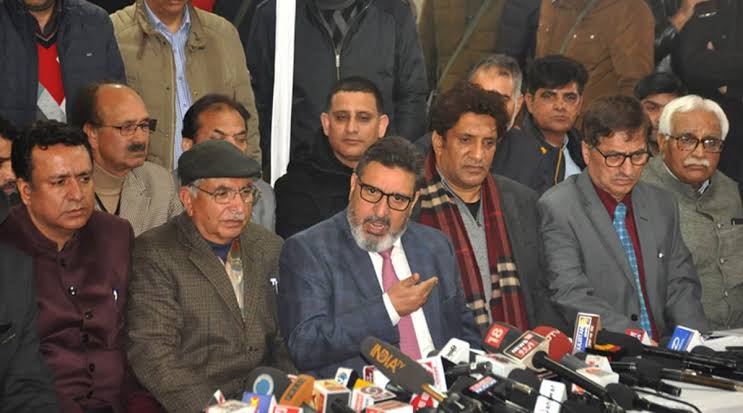


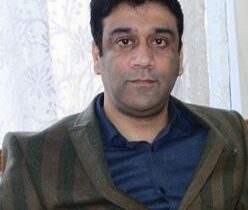
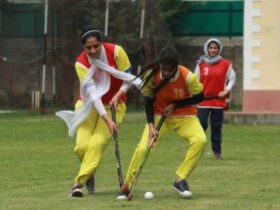

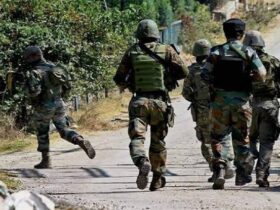





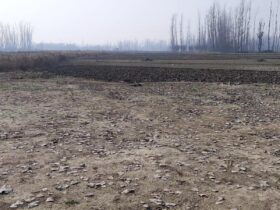
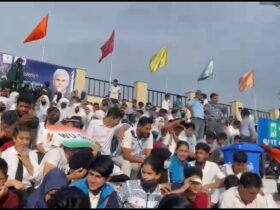

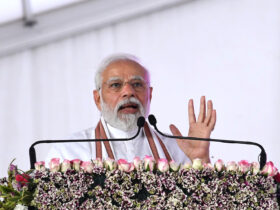
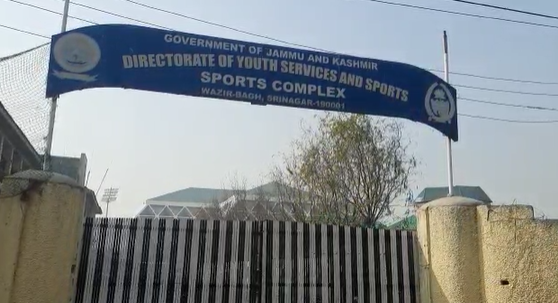
Leave a Reply